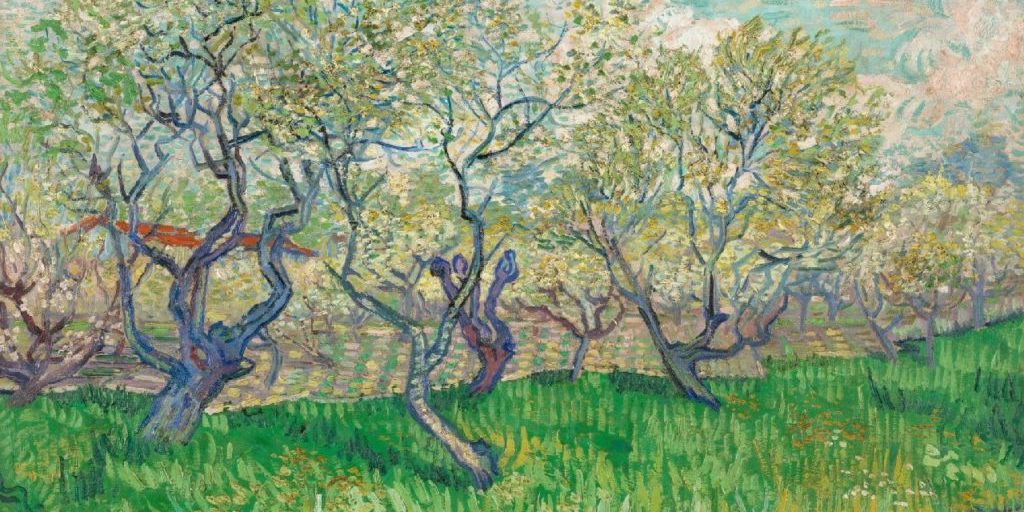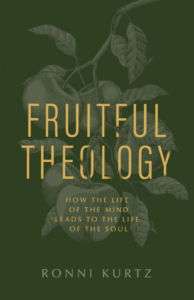
Theologically Fueled Three-Directional Love
G od is love. Christ demonstrated God’s love by laying down his life for us while we were still his enemies. Theology helps faith become understanding as we explore the details of this life-giving love in the doctrine of the atonement, which, as we study it, helps us be increasingly transformed into a loving people. Here, we turn to a consideration of what a theologically fueled love actually looks like. The combination of the biblical testimony and Christian wisdom seems to point toward a three-directional love: love of God, love of others, and a healthy love of self.
od is love. Christ demonstrated God’s love by laying down his life for us while we were still his enemies. Theology helps faith become understanding as we explore the details of this life-giving love in the doctrine of the atonement, which, as we study it, helps us be increasingly transformed into a loving people. Here, we turn to a consideration of what a theologically fueled love actually looks like. The combination of the biblical testimony and Christian wisdom seems to point toward a three-directional love: love of God, love of others, and a healthy love of self.
Love of God
First John 4:19 tells us that the direction of our love for God and God’s love for us has a clear pattern: “We love because he first loved us.” In fact, the Scriptures teach us that God loved us even before the foundation of the world (Rom. 9:11; Eph. 1:4-6). God’s love for us enables our love for God.
What’s more, in the contemplation of how God displayed his love for us, we might find the fuel needed to love God in return. It is the preeminent joy and responsibility of Christians to love God. As the greatest of all the commandments, we set our affections Godward, and our pilgrimage takes us from one degree of love to another for this God who has ransomed our wayward souls.
Love of Others
In his book The Four Loves, C. S. Lewis depicts the danger of loving another and the vulnerability that comes with it.
To love at all is to be vulnerable. Love anything and your heart will be wrung and possibly broken. If you want to make sure of keeping it intact you must give it to no one, not even an animal. Wrap it carefully round with hobbies and little luxuries; avoid all entanglements. Lock it up safe in the casket or coffin of your selfishness. But in that casket, safe, dark, motionless, airless, it will change. It will not be broken; it will become unbreakable, impenetrable, irredeemable. To love is to be vulnerable.
Lewis is of course correct. To love our neighbor is a dangerous endeavor. In the contemplation of how God displayed his love for us, we might find the fuel needed to love God in return. Click To TweetLoving our neighbor often involves a necessary inconvenience, as we lay down ourselves for the good of our neighbor. It is often easier to love the idea of “mankind” without bothering to love our actual fellow man. Yet the chorus of “one another” commands in the New Testament-to love one another, look after one another, mourn with one another, bear one another’s burdens, etc. demands that we actually step into the messy particularities of our neighbors’ lives.
While entering into the joys and burdens of our neighbors might be exhausting work, it is worthy work. Theology can help us. As we set our minds on how the Lord loves us wayward sinners, we find more than enough impetus to get out and love our neighbors. When our mind’s eye catches a gaze at just how great God’s love is for us, love will move us. Love will move Christians to adopt the fatherless, to feed the hungry, to nurse the sick, to pursue the lost, to insist on kindness, and to count our neighbor as more important than ourselves.
Love of Self
I have a gravitational pull toward self-criticism and self-hatred. I’ve spent hours in prayer and in counseling rooms to work against the intense inward pull toward critical self-analysis, but it still resides within me. I know I’m not alone in this fight against the flesh. As a pastor, I’ve heard of countless Christians who struggle with self-worth and a healthy sense of self-love.Christians can grab hold of theology to gain a right-sized view of who they are–which is one riddled with sin and corruption but also one treasured and redeemed by God. Click To Tweet
Of course, in our world it’s easy to take a nuanced and careful understanding of love for oneself and let it devolve into selfishness or self-centeredness. That error of pride is not what we are after here. Instead, there is a place in Christian wisdom for a healthy measure of love for yourself, and theology might be one tool we can use to pursue this form of Christian maturity.
God created all things and called them “good,” but when God created man and woman, he called them “very good” (Gen. 1:31). Humans are made in the image of God, and by virtue of our Creator, there is something innately good about us. While sin has tarnished all we see and experience, and while our transgressions have taken much from us, our sin cannot take away our status as those who bear the image of our Creator. Moreover, the command to “love our neighbor as ourselves” implies that we have a healthy measure of self-love. Christians can grab hold of theology to gain a right-sized view of who they are–which is one riddled with sin and corruption but also one treasured and redeemed by God. In the tension of life as a sinner and a saint, there is a place for theologically informed love of self.
The above excerpt is from Fruitful Theology: How the Life of the Mind Leads to the Life of the Soul by Ronni Kurtz. Copyright 2022 by Ronni Kurtz. Published by B&H Publishing, Nashville, TN. www.bhpublishinggroup.com

